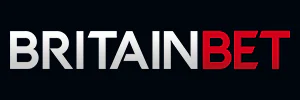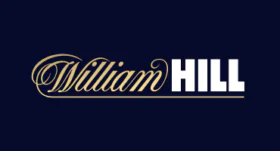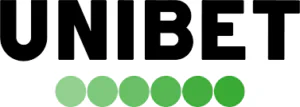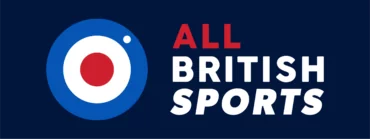Horse Racing Types Of Bets
Horse Racing bookmakers will you offer a price, commonly known as odds. If the horse you are backing has odds of 7/1 to outright win the race and your horse is the winner, for every unit you stake you would gain seven units in return, plus you would get your stake back. So, if you bet £5 on a horse to win at 7/1 and your selection is successful you would win £35 and your £5 stake is returned to you.
This example is a “win only” single bet. You could also back the horse to finish first, second or third, this is a “place only” single bet and it will reduce your odds greatly.
Alternatively, an each way bet means you split your stake in two, with half placed on the win and half placed on a top number of places (depending on the number of runners) at fractional odds. Technically you are placing two bets here, so if you still want to put the same stake down as you were planning for the win only, then you have to double your stake to bet each way.
Straight forecasts and reverse forecasts are another typical bet in the horse racing world. A straight forecast means you are staking on specific horses finishing in the order you pick for first and second places. Alternatively, with a reverse forecast your selections are the two horses you believe will be the first two across the line, regardless of the order.
For the more experienced bettor, there are a multitude of additional options in terms of bet types. A Tricast bet allows you to correctly predict the exact order of the top three finishers, whilst with a double bet you are putting a wager on two horses in different races. A treble is where you back three horses in three separate races and the options increase if you want to add more events, with four-fold and five-fold accumulator bets and so on. These do not have to be “win only” ether, you can mix and match between each way and straight wins.
With a Trixie bet you pick three horses in three different races and you need two of the three to get a result in order to be successful. There are then more complex accumulators such as the Yankee, Lucky 15, Lucky 31 and a Heinz. The lucky 15 involves four horses, four races and 15 different bets combined in one. It is worth noting that the different selections do not have to be at the same courses. For example, you could pick two horses at Cheltenham, one at Ascot and one at Kempton. The more complex combinations are probably best left to the experts and experienced bettors.
The ‘betting without’ market is another way to pick a selection, punters can technically eliminate the favourite from the race. So, if you bet without the favourite and the horse you backed comes home in second place behind the favourite you have still won your bet. This is a way to increase your chances in a race when the favourite is heavily backed and a short price.
Online betting exchanges are where more experienced punters can essentially take the role of the bookmaker and lay on horse to lose. So they ‘win’ if the horse loses, but they have to pay out to those they have exchanged bets with if the horse wins. It is also possible to place ‘In-Running’ bets as odds move up and down during the course of a race.
Horse Racing betting Making selections and picking winners
When betting for fun, many people result on picking a horse just because they like the name or the colours the jockey is wearing. But there are a number of factors to consider if you want to seriously pick out a winner. These will include, the odds, historical and recent form of the horse, the stable and trainer, the jockey’s ability and form, the horse’s suitability to the ground (‘going’) and the weather leading up to and on the day of racing.
You will also want to consider the race distance, the number of horses in the race, the weight the horse is carrying in a handicap race, tips from trusted sources and always keep an eye on fluctuating odds. Also keep an eye out for late ‘non-runners’ as when horses are pulled out of races it logically affects odds and will affect your bet, especially if your selection becomes a non-runner.
Another thing to keep tabs on is early prices offered by bookmakers – they are usually online by the eve of the race – and their eventual difference to the final starting price (SP), which is the final odds being offered when the race gets underway. Many bookmakers offer best price insurance, should the SP turn out to be better for the punter than an early price that they have bet at.
Horse racing betting Rule 4
Rule 4 or R4 is something you may not be familiar with until it affects you and you haven’t been paid out as much as you were expecting.
Rule 4 is an industry wide deduction rule created for when there are non-runners in a horse race after the final declarations have been made. This may also come into play on other markets where there are a set number of participants, and one or more are withdrawn.
There is a tiered reduction from the winnings depending on the odds price of the horse(s) withdrawn from the race, should you pick the winning horse.
Rule 4, or Rule 4(c), is an agreed industry standard deduction strategy that is there to protect bookmakers from non-runners.
If after the final declarations are made, and one or more of the others are then declared non-runners, the original price of the horse you have selected will no longer reflect your horse’s chance of winning the race. Your bookmaker will then reduce your pay-out should your selection win, with the reduction depending on the price of the withdrawn runner.
If the non-runner was an unlikely winner of the race, with odds of 40/1 for example, then no deductions will be made. However, should a more likely winner be withdrawn such as a 6/4 favourite, their non-runner status will have a bigger effect on the price of the rest of the field. This means the shorter the price of the non-runner, the larger the Rule 4 deduction from any winnings. In the rare case that a strong favourite, for example at 1/9, is declared a non-runner, a deduction of 90% of winnings, or 90p in £1 may apply.
Rule 4 does not affect your rights to a stake refund on the withdrawn selection, or any subsequent non-runner prior to coming under starters.
Horse racing betting: How Horse Racing Place Terms Work
A reminder that an each-way bet is effectively two bets in one: a bet to win, and a bet to place. The usual place terms are as follows:
- Handicaps of 16 or more runners: 1/4 win odds on first four places
- Handicaps of 12 to 15 runners: 1/4 win odds on first three places
- All other races of 8 or more runners: 1/5 win odds on first three places
- All races of 5 to 7 runners: 1/4 win odds on first two places
- All races of fewer than 5 runners: win only
Regular punters will be familiar with the maths involved with calculating the “over-round” involved in a win market, and the same can be applied to the place odds derived directly from those win odds.
The calculation is to sum the percentages arising from dividing each horse’s fractional odds, plus one, into 100 (if working with decimal odds, such as on an Exchange, the “plus one” is not required). So, a horse that is 9/1 becomes 100/(9+1) = 10%.
If you add these percentages together for all horses in a race they are likely to come to a bit over 100 – in the 110 to 120 range for most races – and represent the total amount you would have to stake in proportion to each horse’s odds to guarantee a return of 100 regardless of the result.
The same can be done for the place market derived directly from those win odds, so that in a 10-runner race in which a horse is 20/1, the place odds become 4/1 (20 divided by 5) and the place percentage is 100/(4+1) = 20%.
You then divide the sum of these percentages for all runners in a race by the number of places on offer in that race to get the per-place percentage, such as 330%/3 = 110% per-place.
Horse Racing betting: Flat and Jump Racing
Flat
Flat racing is a race run on level ground without racehorses going over fences or obstacles as opposed to Jump racing.
This horse racing is a test of speed and stamina for the horse as well as the skill of the jockey to able to position themself in the right place at the right time, and whether to hold back their horse or ask for more effort.
Although most flat races are run on grass, there are also a number of courses that have all-weather surfaces to ensure racing can stay on in difficult weather conditions. The majority of all-weather races are run in the winter.
The top 35 biggest flat races in the UK form the QIPCO British Champions Series. The biggest flat racing festivals in the British racing calendar happen between May and October.
Jump
Jump racing includes obstacles or fences that the horse and jockey jump throughout the race. The smaller obstacles are known as hurdles and the bigger obstacles are known as fences.
The Jumps is a more of a test of stamina and the horse’s ability to jump, therefore the horses tend to be older, bigger and more developed than their flat racing counterparts.
Jump racing happens all year round with the biggest races and biggest racing festivals happening between October and April.
The biggest events in the Jump racing calendar are the Cheltenham Festival in March and the Grand National Festival in April at Aintree.
Horse Racing betting: Festivals
The Cheltenham Festival
All roads in the Jump season normally lead to the Cheltenham Festival, which runs over four days in March. This festival plays host to the best National Hunt horses from the UK and Ireland. The Gold Cup, held on the final day of the Festival is crème de la crème event of the Jumps racing calendar. It also brings out the good-natured rivalry between England and Ireland in the form of the Prestbury Cup which is awarded to the nation that has the most winners throughout the week.
Cheltenham Festival
Over the four-day festival there are 7 races a day and 28 races in total. Some races are more esteemed than others with and are known as Championship Races. In total there are 4 Championship races, one each day. There is a lot of excitement surrounding these races and punters look forward to them all year long. The line-up of the race schedule is as follows:
Day 1:
- Arkle Challenge Trophy
- Handicap Steeple Chase
- Champion Hurdle
- Mares Hurdle
- Novices Handicap Chase
Day 2:
- Ballymore Novices Hurdle
- Brown Advisory Chase
- Coral Cup
- Queen Mother Champion Chase
- Cross Country Chase
- Boodles Juvenile Hurdle
- Champion Bumper
Day 3:
- Turners Novices Chase
- Network Final
- Ryanair Chase
- Stayers Hurdle
- Festival Plate
- Dawn Run Novices Hurdle
- Fulke Walwyn Kim Muir
Day 4:
- Triumph Hurdle
- County Hurdle
- Albert Bartlett Novices Hurdle
- Cheltenham Gold Cup
- Foxhunter Chase
- Grand Annual Chase
- Martin Pipe Handicap Hurdle
Each of the main Championship races are as follows:
Tuesday – Champion Hurdle 15:30
Day one’s main race is the Champion Hurdle Challenge Trophy which is run over a length of 2 miles and half a furlong. It is the fourth race of the day when the event is truly in full swing. Buveur d’Air and Honeysuckle are among the races most prolific horses. Both of them winning the race back to back.
In terms of the betting trends of this race, trainers to keep an eye on include Willie Mullins who has won it 4 times in recent years. Nicky Henderson similarly has won 4 times in recent years. I’d also keep an eye on horses owned by J.P.McManus as his horses have won the event 4 times consecutively from 2017-2020.
Wednesday – Queen Mother Chase 15:30
Day two features the 2-mile-long Queen Mother Champion Steeplechase. As with all Championship races it takes place in the middle of the card and has the biggest purse of the day at £400,000. Recent winners include an Altior double, Sprinter Sacre, Politologue and Put The Kettle On.
Nicky Henderson leads the way in recent years from a trainer’s point of view. With 3 wins since 2016 he’s certainly one to watch for this year’s race.
Thursday – The Stayers’ Hurdle 15:30
There are two impressive races on day three with the Ryanair Steeple Chase being a big one at 14:50 however the main event of the day is The Stayers Hurdle. The race is ran over 3 miles and has produced some legendary horses in the past most notably Big Buck’s who won the race in 4 consecutive years from 2009-2012. No horse has won it more than once since then.
Friday – Cheltenham Gold Cup 15:30
The pinnacle of the festival. The Cheltenham Gold Cup. The race boasts the biggest purse at £625,000 and takes place on the final day is the one that everyone wants to win. Recent victors include A Plus Tard, Minella Indo and a Paul Townend and Willie Mullins back-to-back win on Al Boum Photo in 2019 and 2020.
There are no patterns or dominant trainers at the Gold Cup. It will really come down to which horse performs on the day but one things for sure it will be a true battle for the ultimate prize in horse racing.
Other Festivals
Horse Racing Betting: The Grand National Festival
The Grand National Festival starts in April, an event which needs no introduction. This three-day racing festival culminates in a race that captivates audiences worldwide. The race is so famous that the obstacles are often more popular than some of the horses. From Bechers Brook to Canal Turn, from Red Rum to Tiger Roll, this spectacle is often described as the most exciting race in horse racing and it is clear to see why. Held at Aintree Racecourse on the outside of Liverpool, the city comes alive during the three days for a spectacle not to be missed.
Horse Racing Betting: The QIPCO Guineas Festival
The QIPCO Guineas Festival in May opens the UK’s flat season. Held at Newmarket, the ‘Home of Racing’, the season opens with a bang with the first two Classics of the Season, the QIPCO 2000 Guineas (for colts) and the QIPCO 1000 Guineas (for fillies). The Derby and St Leger The Derby and the St Leger also feature on this card, the opening leg of the Triple Crown.
Horse Racing Betting: The Investec Derby Festival
The Investec Derby Festival is held at Epsom in June and features two Classic races, the Investec Oaks (for fillies) and the Investec Derby (for colts). The Derby contest is Britain’s richest horse race and has been replicated worldwide. The Queen was a regular attendee alongside many other rich and famous to watch the top three-year-old horses fight it out for one of the most prestigious prizes in racing.
Horse Racing Betting: Royal Ascot
Royal Ascot is synonymous with pageantry and spectacle, opened every day by a royal procession it never fails to deliver a parade of fashion and style as well as highly anticipated and hotly contested racing. Held over five days in the middle of June, it is one of the most unique and well-known horse racing festivals, which needs little introduction around the world.
Horse Racing Betting: Glorious Goodwood
Glorious Goodwood follows later in July and features five days of spectacular racing that regularly attract some of the best horses in the world – particularly for their QATAR Sussex Stakes on the Wednesday of the fixture. The tradition for panama hats and linen suits here make it unique along with its summer garden party atmosphere.
Horse Racing Betting: York Ebor Festival
The action moves to York for the Welcome To Yorkshire Ebor Festival for four days in August. Held on the hallowed ground of the Knavesmire it has hosted many of the greats including Frankel and more recently superstar filly Enable. One of the highlights of the festival is the Ebor, the richest handicap in Europe and a puzzle that never fails to disappoint.
Horse Racing Betting: The St Leger Festival
The world’s oldest Classic race takes place at the Doncaster St Leger Festival in September. This meeting opens with the Leger Legends Charity Race in which retired racing celebrities make a return to the saddle in aid of some great causes. The saying goes ‘The fastest horse wins the Guineas; the luckiest the Derby – and the best horse wins the St Leger’ illustrating that many eyes will be glued to the action unfolding here.
Horse Racing Betting: QIPCO British Champions Day
QIPCO British Champions Day is the finale to the UK Flat season held at Ascot. It has been the backdrop for incredible scenes in its feature race, the QIPCO Champion Stakes, which was the final race Frankel competed in and was won in 2014 by his half-brother Noble Mission. It is the richest raceday in the UK and the action both on and off the track never fails to disappoint.
Horse Racing Betting: The Cheltenham November meeting
The autumn sees the National Hunt season return at Cheltenham with three days of action from The November meeting. This meeting covers all aspects from the twists and turns on the cross-country course to the Paddy Power Gold Cup, which has been won by some big names en route to success at the highest level.
Horse Racing Betting: The King George VI
The King George VI meeting at Kempton held on Boxing Day is great way to soak up the Christmas atmosphere with family and friends and see who will take one of the most prestigious contests in Jump racing.















